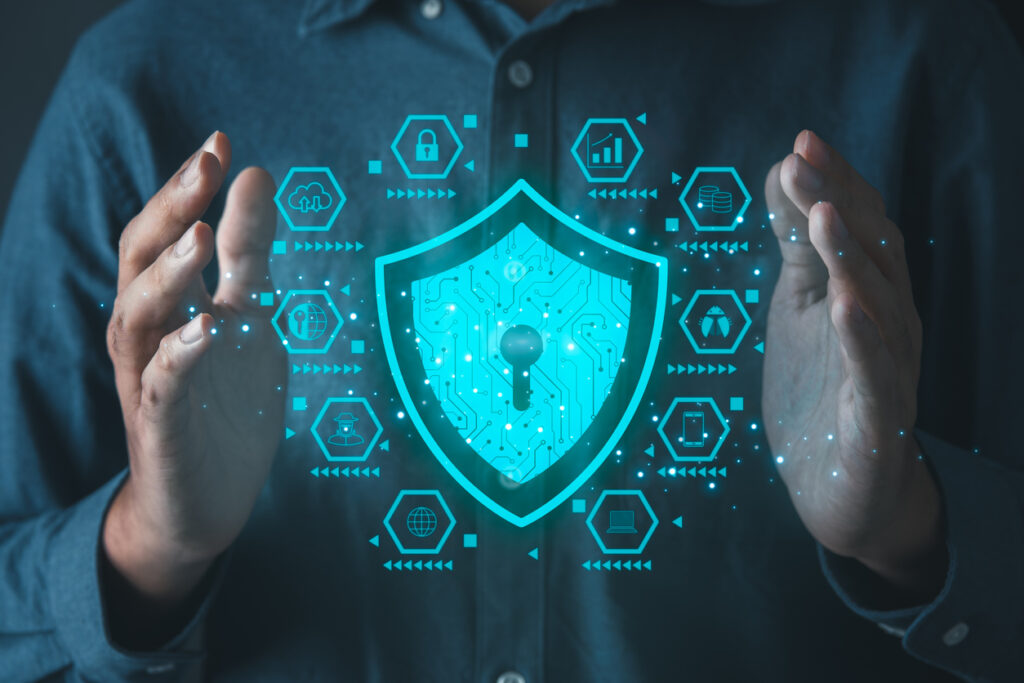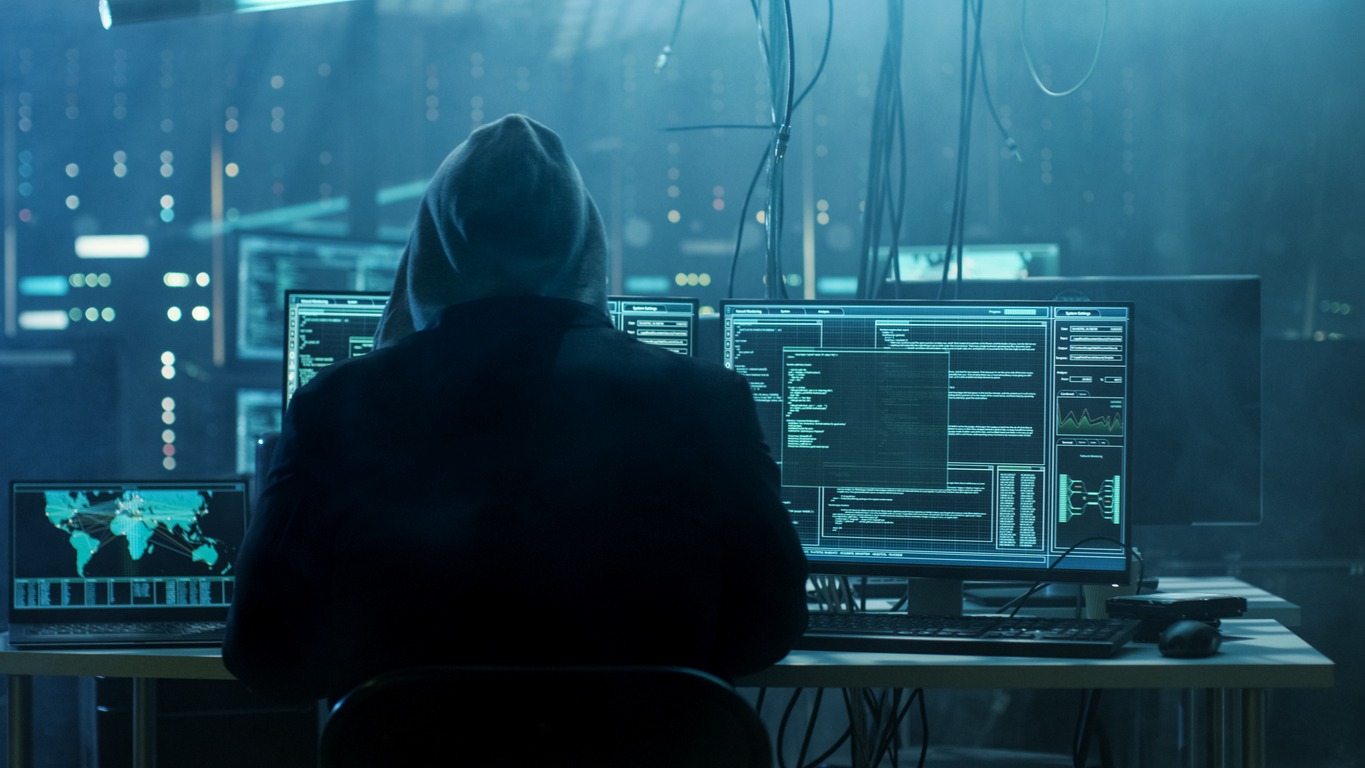Cyber security protects systems, networks and programs from digital attacks. These cyber attacks are often aimed at unauthorized access to sensitive data and the alteration or destruction of sensitive information. Cyber attacks are aimed at extorting money from users through ransomware or disrupting normal business processes.
Cyber Crime - what is that exactly?
What is cybercrime? Just like ordinary crime, it also exists on the Internet. Some examples of cybercrime include identity theft, online predators, BEC (“Business Email Compromise”), ransomware, and the theft of sensitive intellectual property.
Why the increase in crime?
Cybercrime increases regularly every year. Some reasons for this are that cybercrime is easy to commit and the risk of being caught is low. There is often a high return for little work, and attackers can target thousands of victims. Money laundering is easier, and challenges such as identity theft can have significant consequences. This can lead not only to financial loss, but also to much personal heartache.
The internet offers many services to facilitate money laundering, usually making it a trivial process. As money is exchanged in cryptocurrency*, services such as tumblers make it hard to track the money.
Tumblers are services which split up cryptocurrency transactions and forward the money through many accounts, with different values, for thousands of people, making them hard to track.
What do cybercriminals do and who are they?
Who are cyber criminals? It can be anyone, but some common ones we see in the media all the time. like state-sponsored groups targeting organizations in other countries, Hacking Groups out to target companies to make them pay ransom, or even kids in their rooms doing illegal hacking.

How can cyber criminals be caught and exposed?
Cyber criminals can remain anonymous using trivial means, and it is generally easy to avoid being caught. When attackers are caught, it is often because of mistakes they made themselves, for example through complacency. There is also significant potential for law enforcement to use apprehended cybercriminals to exclude other actors in the trade.
However, law enforcement faces many challenges when pursuing cybercrime. You might see attack traffic coming from a system in the UK. If you take that system offline, you may find it was being controlled remotely from, for example, a computer in India. If you cooperate cross-border with law enforcement you might be able to reach the system in India, only to discover it was again being controlled remotely, for example from a system in Pakistan.
Money Making Threats
Cyber criminals are driven by money
There are a few key threats organizations face frequently:
-
- Ransomware files and systems : Are encrypted with the attackers' keys and require you to pay money to get your data back.
-
- Cryptocurrency miner: Your systems are infected with a low-profile cryptocurrency mining tool. This tool uses the CPU to try make money on a cryptocurrency for the attackers.
-
- BEC ("Business Email Compromise"): Users are hacked using all kinds of methods and their emails are compromised. Through email compromise, attackers can intercept communications - such as an invoice - and attempt to redirect payments to other banks and accounts. There are many ways for cybercriminals to make money, which attracts people and interest.
Value and power
There is value and power in many areas that have to do with IT, for example:
Bandwidth can be used to put companies under pressure by targeting them with DDOS ("Distributed Denial of Service") attacks. Hacked systems can contain sensitive, valuable information, such as proprietary information, online gaming resources, sensitive photos and images.
Attackers can install themselves in browsers and attempt to hijack online banking usage. The potential for criminals to make significant amounts of money in the cyber realm means that more and more criminal gangs and other opportunists are getting involved and making our lives much more difficult.
Threatening for Money
Another common attack cyber criminals perform to make money is the act of extortion, that is holding individual’s hostage based on information they have on an individual, trying to make them pay money to be released from the extortion attempt.

Dark Web
The Dark Web (also known as The Dark Net) is a network on the Internet that is only accessible via certain software and protocols. The dark web has many names, for example Tor Network or Onion Router.
Anyone can access the dark web by simply downloading software for it. A popular and widely used browser is the Tor Browser from the Tor Project. This is like any other browser such as Google Chrome or Microsoft Edge, except that it can also access special website addresses that end in ".onion" instead of ".com" or similar.
All traffic sent through the Tor Browser is automatically anonymized and encrypted across many different hosts. The browser also has built-in protection against many types of tracking and de-anonymization functions (data re-identification).
Access to the dark web**
You can access many fun and interesting websites through this browser, also many which co-exist on the regular Internet. For example, if you access the following URLs in Tor Browser, your communications will be fully encrypted and anonymized inside the Dark Web:
-
- DuckDuckGo Search Engine
-
- The American CIA ("Central Intelligence Agency")
-
- The Hidden Wiki, a collection of links and places to explore
Due to the built-in anonymization functions and encryption, the dark net is also a breeding ground for many criminal websites, marketplaces and networks.
* Cryptocurrency is money that is represented in digital form instead of physical form. There are many different cryptocurrencies, some are very widely used like Bitcoin, others are smaller and unknown to most people. These currency models rely on strong cryptography and public ledger systems to keep track of transactions and the amount of currency on the market. ** Please be careful when navigating the Dark Net. The links above only work when using the appropriate software. We also do not recommend going on the dark web.

